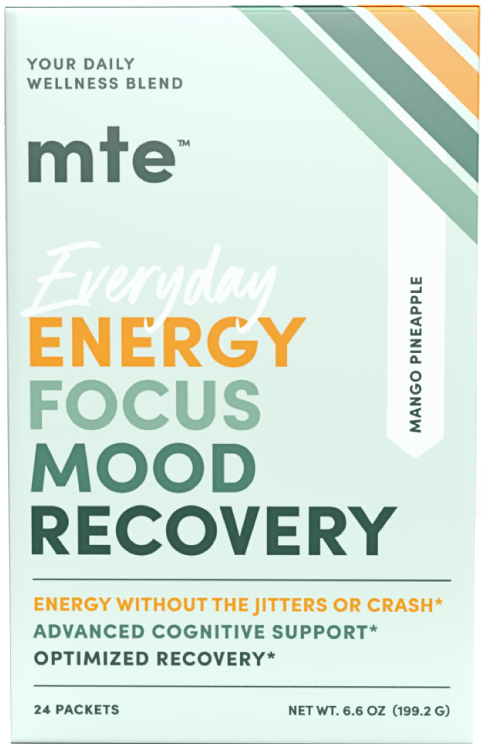
Research-Backed Tips for Waking Up Alert and Energized
Ever look at those people who bounce out of bed like they’ve won the lottery and think, “What’s their secret? Do they sleep on a magic mattress or something?”
Meanwhile, you’re hitting snooze for the third time, trying to summon the willpower to face the day.
For years, we’ve chalked up morning grogginess to bad luck or not being a morning person. But here’s the good news: scientists say it’s neither.
Instead, waking up alert is all about what you do the day before and the moment you roll out of bed. Researchers have cracked the code, and their findings might (but probably won’t) surprise you.
Why the Hell Aren’t Scientists Coming up With Ways to Solve Morning Grogginess?
You’d think with all the breakthroughs in science, like curing diseases, sending robots to Mars, and creating AI that writes poetry, we’d have figured out mornings by now. But no. For millions of us, waking up still feels like trying to reboot an old laptop: slow, glitchy, and in desperate need of a hard reset.
Turns out scientists have been working on it.
A team at UC Berkeley studied 833 people over two weeks to figure out what actually helps us wake up alert.
Participants wore devices to track their sleep, activity, and glucose levels and logged their meals and alertness throughout the day. Oh, and they ate pre-prepared meals (yes, even muffins) with different macronutrient content to test how different breakfasts impacted their mornings.
Researchers even included identical and fraternal twins to separate the effects of genetics from lifestyle habits.
And the results? Morning grogginess isn’t your destiny – it’s your habits.
They identified three most important factors that help you feel energized and alert in the morning:
- Getting substantial physical activity the day before boosts next-morning alertness.
- Starting the day with a high-carb, low-sugar breakfast improves focus and stabilizes energy.
- Sleeping longer and later clears away grogginess and aligns with your body’s natural rhythm.
Who knew that muffins, exercise, and a little extra snooze time could hold the key to better mornings? Science, you’ve redeemed yourself (for now).
The Morning Alertness Formula Explained
Now that we know morning grogginess isn’t fate, let’s get practical. The UC Berkeley study didn’t just point fingers at bad habits. It laid out exactly what needs to change.
Exercise, sleep, and breakfast aren’t groundbreaking concepts, but the way they work together to combat grogginess might surprise you. Let’s dig into how you can make these habits work for you.
1. Exercise
According to the study, participants who engaged in substantial physical activity the day before experienced a noticeable boost in next-morning alertness and focus. And it wasn’t just a small difference. The data showed that regular activity correlated with consistently higher energy levels upon waking.
So, why does this work?
Exercise triggers a cascade of benefits that prime your brain and body for better mornings. Physical activity improves sleep quality, helps regulate stress hormones, and boosts mood. All these factors carry over to the next day. Plus, exercise promotes better blood flow and oxygen delivery, which are vital to feeling alert.
Now, we know what you’re probably thinking: “How am I supposed to squeeze in exercise when I’m already juggling work, family, friends, and, you know, staying sane?”
The truth is, you don’t need a marathon workout to see the benefits. Even some activity can make a big difference.
Here’s how to fit exercise into your busy life without feeling like you’re training for the Olympics:
- Sneak in micro-movements: Take the stairs, park farther away, or do a quick stretch while waiting for your coffee to brew. Every little bit adds up.
- Turn chores into a workout: Mopping the floor or carrying groceries doubles as cardio (think of it as multitasking).
- Schedule it like a meeting: Block 15–30 minutes on your calendar and treat it like an unmissable appointment with yourself.
- Move during screen time: Got a favorite TV show? Do squats, planks, or marches in place during an episode to combine entertainment with movement.
- Find your fun: Whether it’s dancing, biking, or chasing your kids around, choose activities you actually enjoy to make exercise feel less like a chore.
2. Breakfast
Researchers also wanted to test how different morning meals affected participants’ alertness throughout the day. To do this, they tested various pre-prepared breakfasts, including high-protein, high-carbohydrate, and high-sugar options.
Unsurprisingly, sugary breakfasts produced the worst outcomes and left participants groggy and unfocused within a few hours.
The best results came from breakfasts that were high in complex carbohydrates, moderate in protein, and low in sugar. These meals helped participants rev up their alertness quickly in the morning and maintain that focus throughout the day.
That’s because complex carbs provide sustained energy without the blood sugar spikes and crashes caused by simple sugars.
Here are some breakfast ideas to keep you energized and focused all day:
- Overnight oats with fresh berries, a handful of nuts, and a drizzle of honey
- Whole-grain toast topped with smashed avocado and a sprinkle of chia seeds
- Smoothie with spinach, banana, Greek yogurt, and almond butter
- Scrambled eggs paired with roasted sweet potatoes and sautéed spinach
- Quinoa breakfast bowl with mixed fruits and two scoops of almond yogurt
3. Sleep
You’re not going to believe this, but it turns out that sleeping more makes you feel more focused and alert. Groundbreaking, right?
Okay, let’s tone down the snark because while it sounds obvious, studying sleep is crucial to understanding how we can improve it.
Scientists from UC Berkley confirmed that the quality and timing of your sleep play a huge role in how refreshed you feel when you wake up.
Participants who slept longer and woke up later reported significantly higher alertness levels in the morning. This wasn’t just anecdotal. Consistent patterns in their sleep and wake times were strongly linked to better focus and energy the next day.
It all comes down to two key factors:
- Clearing sleep inertia: Sleep helps your body clear adenosine, a chemical that builds up during the day and makes you feel tired. Without enough sleep, adenosine lingers, which leaves you groggy and unfocused.
- Aligning with circadian rhythms: Waking up later aligns with your natural circadian rhythm, which naturally boosts alertness as the morning progresses. Waking too early disrupts this rhythm and leaves you feeling out of sync.
So, how can you ensure your sleep sets you up for a productive morning?
- Get some natural sunlight in the morning to reinforce your body’s wake-sleep cycle.
- Keep your sleep schedule consistent, even on weekends, to help regulate your internal clock.
- Aim for 7-9 hours of sleep per night and gradually add time if you’ve been cutting corners.
- Avoid screens or blue light at least an hour before bed to encourage melatonin production.
- Create a calming sleep environment by keeping your bedroom cool, dark, and quiet.
- Limit caffeine and stimulants late in the day because they can disrupt falling or staying asleep.
Your Mornings Are in Your Hands, Not Your DNA
For years, we’ve been telling ourselves that morning energy is just a genetic lottery. Some people are born early birds, while the rest of us fumble for the snooze button like it’s a survival skill.
However, the UC Berkeley study found that genetics only play a minor role in how alert you feel in the morning. About 25% to be exact. The other 75%? That’s all you.
The research included identical and fraternal twins to untangle the influence of genes from lifestyle habits. Identical twins share nearly all their DNA, while fraternal twins share only about 50%.
If genes were the main driver of morning alertness, identical twins would have shown similar levels of focus and energy upon waking. But the data told a different story. Lifestyle habits like exercise, sleep quality, and diet had a far bigger impact on how good participants felt.
This finding is huge because it means your mornings are something you can actively control. And with the right tweaks to your habits, you can trade those rough wake-ups for clear, energized starts to your day.
So, What About Morning Drinks?
The study didn’t specifically dive into morning drinks, but they’re one of the first things most of us reach for when we wake up. Whether it’s coffee, tea, or a productivity drink, what you sip in the morning matters. And while the UC Berkeley researchers didn’t test them, it’s easy to see how the right beverage could help you feel more alert and focused.
For example, energy drinks with adaptogens like ashwagandha help your body stay cool under pressure. That way, stress and fatigue become less of an issue.
In addition, some morning drinks include nootropics like paraxanthine that can sharpen your focus and clear that brain fog.
But let’s talk about a drink that checks all the boxes: MTE.
This wellness drink powder combines 11 adaptogens, nootropics, and superfoods to help you stay energized, focused, and calm all at once. And since it’s caffeine-free, you don’t have to worry about crashes or jitters. You just enjoy steady energy that lasts.
Conquer Your Mornings With MTE
The science is clear – conquering groggy mornings is all about building the right habits. Exercise the day before to prime your body, get enough sleep to let your brain recharge, and fuel your mornings with a nutritious breakfast to keep your energy steady and your focus sharp.
But why stop there? On top of these three essentials, you can add a little something extra – a healthy productivity drink that takes your mornings from good to unstoppable.
With MTE, you get a caffeine-free energy drink alternative packed with adaptogens, nootropics, and superfoods that support energy, focus, and mood without sugar spikes or crashes. It’s the perfect addition to your morning routine if you want to stay sharp, calm, and ready for anything the day throws your way.
Nail the basics, add MTE, and you’ll be well on your way to mastering your mornings.



